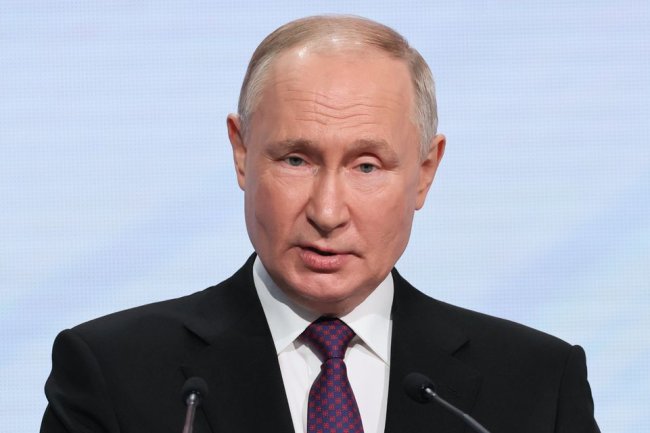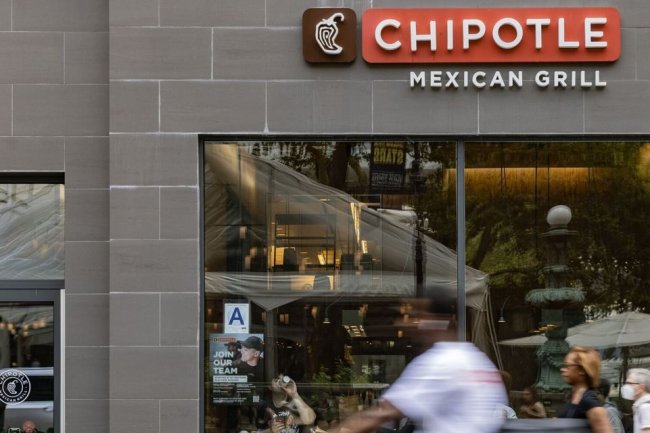The Mad Winds That Drove the Riots in France
My country faces a trial. Neither illiberalism from the left nor the right will deliver justice and peace. By Bernard-Henri Lévy July 5, 2023 12:21 pm ET A French firefighter works to extinguish a burning car in Tourcoing, France, July 2. Photo: PASCAL ROSSIGNOL/REUTERS Paris Full and unconditional solidarity with the municipal officials who were attacked or targeted for assassination, like the mayor of L’Haÿ-les-Roses, Vincent Jeanbrun, and his family. Grief for Nahel Merzouk, the teenager whose killing by a French policeman ignited the riots, and for Dorian Damelincourt, the fireman who died fighting the flames in Saint-Denis. Unconditional solidarity, again, with the 45 police officers seriously wounded while working to the point of exhaustion to protect public and


A French firefighter works to extinguish a burning car in Tourcoing, France, July 2.
Photo: PASCAL ROSSIGNOL/REUTERS
Paris
Full and unconditional solidarity with the municipal officials who were attacked or targeted for assassination, like the mayor of L’Haÿ-les-Roses, Vincent Jeanbrun, and his family.
Grief for Nahel Merzouk, the teenager whose killing by a French policeman ignited the riots, and for Dorian Damelincourt, the fireman who died fighting the flames in Saint-Denis. Unconditional solidarity, again, with the 45 police officers seriously wounded while working to the point of exhaustion to protect public and private property in France’s impoverished suburbs.
Sympathy for the terrorized senior who dares not venture out; the owner of the convenience store who arrives in the morning after a night of rioting to discover the work of a lifetime reduced to nothing; the mothers who see their children’s preschools set aflame; the citizens who witness the sacking of their neighborhood’s public services.
Horror at the scene in Nanterre, where the monument to the martyrs of deportation and the resistance was vandalized and a nearby building was painted with the slogan “We’ll make a Holocaust out of you, bitches.”
Concern over the scarcely noticed statements from Algerian, Iranian, Russian and Turkish authorities shedding crocodile tears over the victims of “police violence,” presuming to give France lessons in democracy, and, in so doing, fanning the flames.
Disgust, in the same vein, for the politicians of Jean-Luc Mélenchon’s populist left who, like Raymond Poincaré laughing in the cemeteries, strut through the riot zones, compare the pillaging of a McDonald’s to the taking of the Bastille, and, when they are asked to call for calm, can only repeat, like broken records, “The police kill, the police kill, the police kill.”
And desolation at what has become of the noble tradition of popular and workers’ rebellions. At this new brand of riots without purpose and without words. Desolation at these upheavals that take aim at the elderly, the poor, the defenseless, as if saying, “Leave us alone to destroy. We don’t want rights, only zones of lawlessness.” All that is so far from the barricades of Victor Hugo’s “Les Misérables,” from Jean-Paul Sartre’s “fused groups,” and from the “beautiful, sonorous wind” that blew over the great antifascist demonstration in Vienna in 1927, the event that inspired Elias Canetti’s concept of the “open masses.”
That is where we must begin. However unjustifiable the killing of Merzouk was, nothing justifies this “mad fury” that, as Hannah Arendt
said in “On Violence,” is turning into a “nightmare for us all.”But that isn’t enough. We must also stand up to that other mad wind, the one blowing from a far right that has trouble hiding its secret desire for the “civil war” that it claims is a looming threat.
To do that, without minimizing the gravity of what is happening, we have to remember that, from the Watts riots in Los Angeles in August 1965 to the Bristol riots in Britain in the 1980s and the violence in Stuttgart in 2020, France isn’t the first democracy to undergo this sort of trial.
We have to beware political leaders who do nothing but mouth “Close the borders!” or “Zero immigration!” as if lawless protest were solely an import to France. Recall the tax revolts of postwar decades, when the “good French people” of Pierre Poujade and Gérard Nicoud
lit a fire under popular resentment of taxes and urged direct action. What are we to make of the recent demonstrations of the Yellow Vests or against the raising of the retirement age? They have shown their share of wrath and rage, of town halls pelted with rocks, of threats against politicians.We have to reject, as we did during attacks by Islamic radicals, the temptation to blame an entire population. It’s unfair, unjust and idiotic to equate gangs of criminals with their neighbors, many of whom are their victims. Instead of calming things down, the seeds of chaos are sown.
Once peace has been restored and the spiral of retaliation broken, we will have to work toward a significant strengthening of mutual tolerance. This cannot come from President Emmanuel Macron alone; to make a difference, it will have to come from all of us.
The answer isn’t, as one hears ad nauseam, that the Republic has “done nothing” for 40 years to regain control of the lost territories surrounding its cities.
Much more is involved: Working to restore the dialogue between young people and the police. Confronting the problem of mass unemployment in disenfranchised neighborhoods. Repairing the social bond where it has been broken. Keeping our banlieues from remaining ghettos, accursed areas of our urban landscapes born as much of the willfulness of the gangs as of government negligence. If we wish to prevent the desert from encroaching, and the two forms of populism from sweeping the table, these must be France’s priorities in the coming years.
Mr. Lévy is author of “The Will to See: Dispatches From a World of Misery and Hope” and author and director of the documentary “Slava Ukraini.” This article was translated from French by Steven B. Kennedy.
Journal Editorial Report: The week's best and worst from Kim Strassel, Allysia Finley, Bill McGurn and Dan Henninger. Images: EPA/AP/PA/Reuters Composite: Mark Kelly The Wall Street Journal Interactive Edition
What's Your Reaction?

















